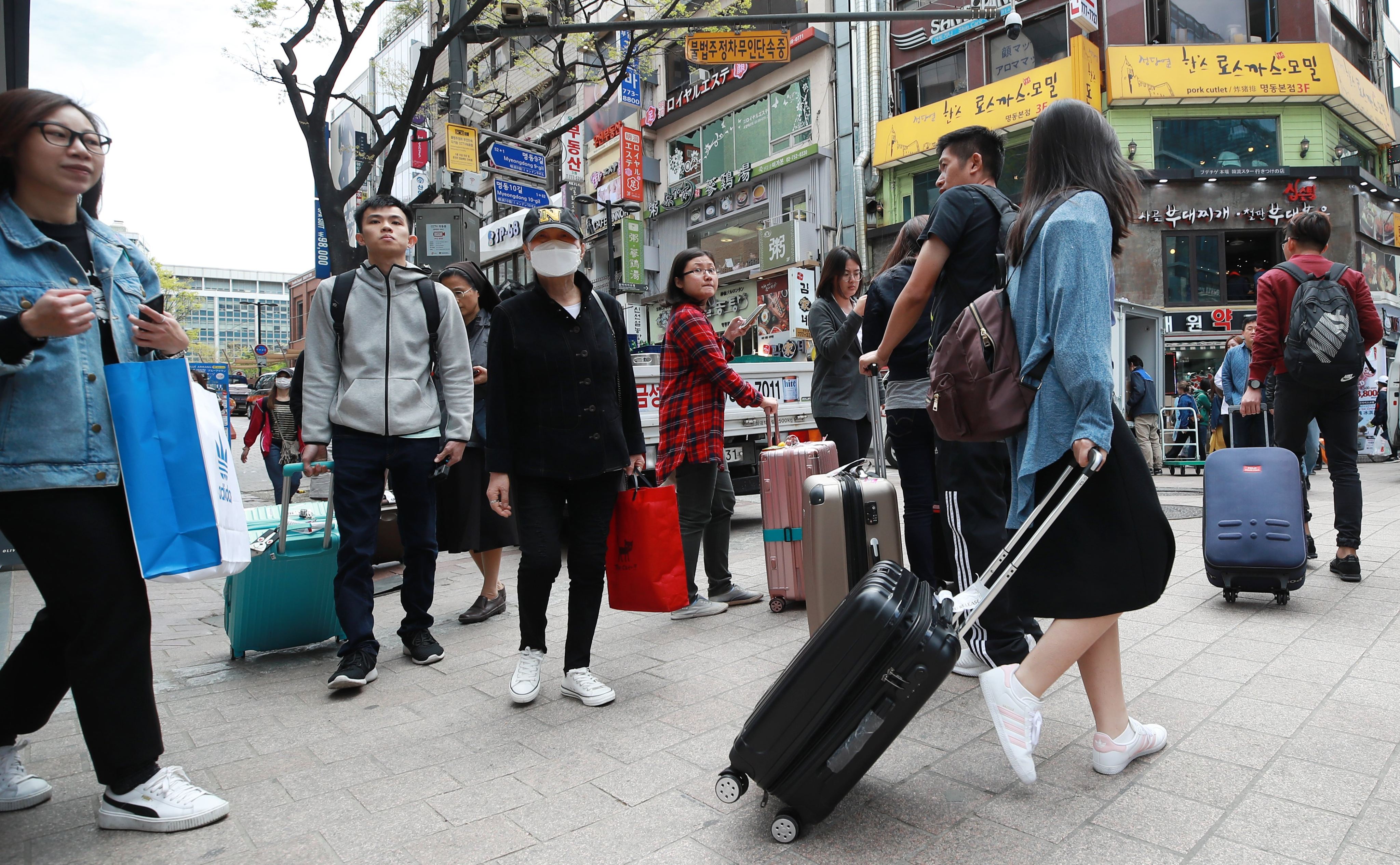End of political chaos in South Korea sparks pickup in Chinese visitors
Inauguration of President Lee Jae-myung expected to lead to an increase in tourism exchanges and improved bilateral ties

Chinese tourism to South Korea is picking up with the end of political instability in Seoul and the two nations pledging closer relations shortly before visa exemptions take effect, travel industry sources said this week.
Bookings from China to South Korea for the three months from April to June have been about 24 per cent higher than for the three months ending in February, according to data compiled by China Trading Desk, a travel marketing and technology company. China is South Korea’s largest source of foreign visitors.
Chinese bookings rose just 7 per cent year on year in February, making it the slowest-growing month so far this year, the company said. China’s annual Lunar New Year outbound travel boom ran from January 28 to February 4 this year.
Between December 2 and 9, as the Korean political fracas unfolded, bookings from China to South Korea for January and February fell by 12 per cent, it said.
Growth in tourism is tracking a winding down of political chaos that shook Seoul from December through to this month’s inauguration of President Lee Jae-myung. Lee and Chinese President Xi Jinping have spoken by phone to promote what China’s Xinhua News Agency called “stable relations”.
The brief use of martial law in December and the impeachment of former president Yoon Suk-yeol deterred some Chinese tourists ahead of the Lunar New Year holiday, typically a busy season for travel. Without a permanent new president, South Korea remained on edge until this month.
Chinese travellers now see the country as politically stable and safer for sightseeing, tourism industry employees said.
“Most of the situations have ended,” May Chin, global tourism assistant manager with the Seoul Tourism Organisation, said on Thursday at its booth at the ITE Hong Kong 2025 travel expo. “We are thinking this is a good way to promote Seoul as a safe city, to let people feel safe.”
Under Lee’s administration, Korea is expected to see a rise in tourism “exchanges” with China as part of a lift in bilateral ties, the Korea Times reported. Lee said during his campaign that relations had deteriorated before he took office.
“There’s no special policies yet, but I think it would be more open than before, friendlier,” said Lee Ha-yeong, a tourism services assistant manager with the Seoul organisation.
On Jeju, a visa-free island that is 90 minutes from Shanghai by air, arrivals from China rose 7 per cent year on year in April as the annual peak travel season kicked off, Qiao Xin, head of the Jeju tourism and transport bureau’s Guangzhou office, said at the expo.
This political stability has reassured Chinese travellers, boosting confidence in South Korea as a safe and reliable travel destinationSubramania Bhatt, China Trading Desk CEO
He attributed the uptick to the more than 10 Chinese airports with direct flights to Jeju, round-trip airfares as cheap as 200 yuan (US$28) and fading memories of the political upheaval in Seoul.
“One key driver has been the recent presidential election in South Korea, which resulted in a clear mandate and a peaceful transition of power,” said China Trading Desk CEO Subramania Bhatt. “This political stability has reassured Chinese travellers, boosting confidence in South Korea as a safe and reliable travel destination.”
Nearly half the guests at the two-year-old, 460-room Sollago Myeongdong hotel in Seoul are from China, sales and marketing director Steven Kweon said, adding that it has Chinese-speaking staff and Chinese signage.
Chinese tourists were fans of the surrounding Myeongdong district’s cafes, music and “fashionable shops”, Kweon said.
Others travel from China to South Korea for pop music concerts with relatively low ticket prices, tourism promoters said.
When Cai Chenchun visited South Korea in May for the first time, to attend a Guns N’ Roses concert, the 21-year-old Wuhan university student worried more about the everyday risks of travelling alone than any political unrest. The incidents of December were over, she said.
South Korea became the second most popular foreign market for Chinese tourists last year – after Japan – with 3.18 million tourists from China in the first nine months of the year, Korea Tourism Corporation figures show.
Last year brought 4.6 million visitors from China, an increase over 2023 but well below pre-pandemic figures, the Korea Times reported. South Korea received 6 million Chinese visitors in 2019.
South Korea will offer groups of Chinese tourists visa-free access to the whole country in the third quarter of this year as part of a strategy to revitalise tourism, according to the government-run Korea.net web portal.
Visa-free entry would see arrival numbers grow, Seoul Tourism Organisation staff members at the expo said.
The South Korean tourism promotion strategy will also target solo Chinese city dwellers under the age of 30 and the development of tourism linked to sports, food, religion and the arts.
Cai is keen to visit again.
“I hadn’t thought that much about South Korea before, but now that I have an impression, if I go again, I’d go to central Seoul for sightseeing,” she said.